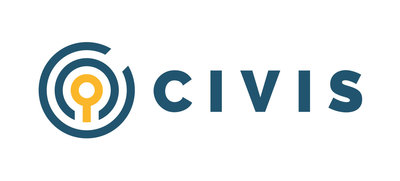|
New Research Suggests How to Message the Eventual COVID-19 Vaccine in the US
CHICAGO, Sept. 9, 2020 /PRNewswire/ -- Data science firm Civis Analytics today released research on the efficacy of various messaging themes in encouraging adoption of the eventual COVID-19 vaccine. Leveraging a randomized controlled trial (the scientific gold standard used in clinical and drug trials) and statistical modeling, Civis tested five messaging themes to understand which would make American adults more likely to get vaccinated. Highlighting the story of an individual who was impacted by COVID-19 was, by far, the most effective message theme.
Messaging themes tested were:
- Safety, which aimed to alleviate concerns about the vaccine by highlighting the FDA's extensive testing process, and emphasizing how a shortened timeline would only impact the cost of development, not safety and effectiveness.
- Economic recovery, which emphasized the economic devastation caused by COVID-19 and the vaccine's role in an accelerated path to recovery.
- Statistics, which leveraged eye-pening data about COVID-19 as a leading cause of death in the US, as well as the prolonged symptoms impacting the quality of life of those who have technically "recovered."
- Personal story, which shared the tale of a young, otherwise healthy American who died from COVID-19.
- Community, which explained herd immunity and emphasized the vaccine's role in making communities healthier for everyone, including those who are unable to get vaccinated.
Key Findings
- The "Personal Story" message was most effective, increasing overall likelihood to vaccinate by 5 percentage points.
- "Economic Recovery," "Safety" and "Community" were least effective across all demographic and geographic categories. They all had a high probability of backlash (i.e. reduced intent to vaccinate), and are therefore not recommended.
- The degree to which each message was effective or not varied slightly by some subgroups.
- The "Personal Story" message was most effective for those in rural areas (+8 percentage points), those with less than a college education and those who make less than $75K/year (+7 percentage points in both cases), as well as white Americans and those aged 50-64 (+6 percentage points in both cases).
- "Statistics" was somewhat effective among some subgroups, but only in a statistically significant way among those aged 50-64 (+6 percentage points).
"America is spending billions of dollars racing to develop a COVID-19 vaccine, but having a vaccine won't matter if no one is willing to take it," said Crystal Son, MPH, a licensed epidemiologist and Director of Healthcare Analytics at Civis Analytics. "We found roughly a quarter of US adults don't plan to get vaccinated. Public health organizations need to start thinking about the language they use sooner than later -- especially knowing vaccine messaging isn't always intuitive or one-size-fits-all."
Civis previously conducted similar studies on flu and HPV vaccine messaging (in 2018 and 2019, respectively).
- The HPV research also found that a message about vaccine safety is ineffective, despite people reporting "safety" as the biggest concern about vaccination.
- Although personal stories were effective for both flu and COVID-19 vaccine messaging, the "community" theme was most persuasive in the flu research, but ineffective for the COVID vaccine. This reinforces that we can't repurpose flu vaccine marketing messages for the eventual COVID vaccine.
Civis plans to re-run this research in the coming months, to understand how current events and potential misinformation impact persuadability over time. More details available here.
Methodology
3,954 survey respondents were divided into six groups, five that saw a message related to COVID-19 vaccination, and one control group that did not see a message. Civis asked respondents in the control group as well as each of the five treatment groups how likely they were to get the eventual COVID-19 vaccine after seeing one of these messages (or in the case of the control group, seeing no message at all). After data collection, Civis built and ran a statistical model that calculated the impact of each message on likelihood to get the COVID-19 vaccination, controlling for respondent characteristics.
About Civis Analytics
Civis Analytics helps leading public and private sector organizations use data to gain a competitive advantage in how they identify, attract, and engage people. With a blend of proprietary data, technology and advisory services, and an interdisciplinary team of data scientists, developers, and survey science experts, Civis helps organizations stop guessing and start using statistical proof to guide decisions. Learn more about Civis at www.civisanalytics.com.
 View original content to download multimedia:http://www.prnewswire.com/news-releases/new-research-suggests-how-to-message-the-eventual-covid-19-vaccine-in-the-us-301126691.html View original content to download multimedia:http://www.prnewswire.com/news-releases/new-research-suggests-how-to-message-the-eventual-covid-19-vaccine-in-the-us-301126691.html
SOURCE Civis Analytics

[ Back To TMCnet.com's Homepage ]
|


